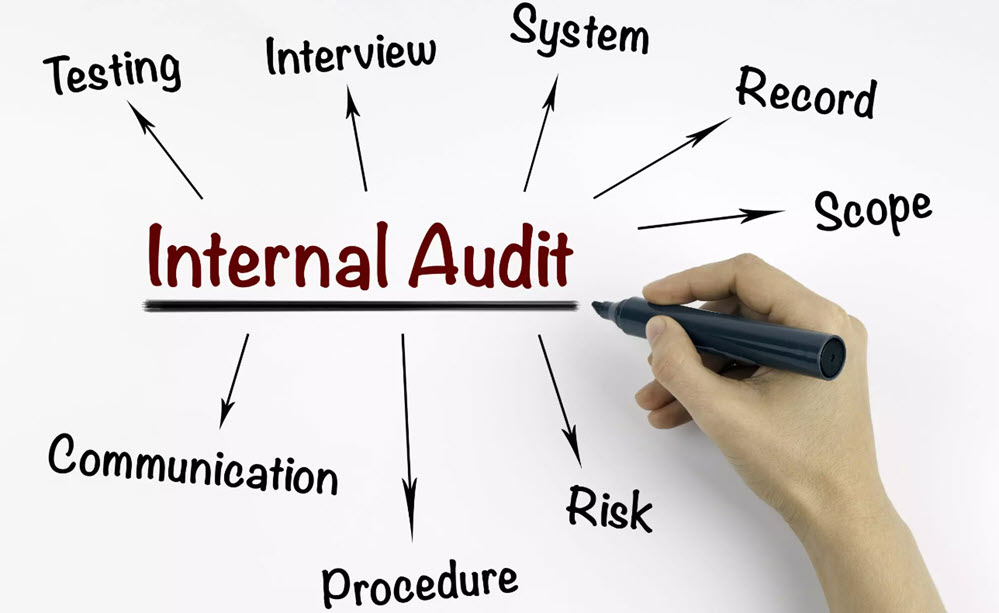EQMS Blog

Advantages of Using an Internal Audit Organisation
In today’s complex business environment, maintaining robust governance and ensuring compliance with regulatory requirements are essential for organisational success. One of the most effective ways to achieve this is through the use of an internal audit organisation. These specialised entities provide an independent, objective assurance and consulting service designed to add value and improve an organisation’s operations. This article explores the key advantages of using an internal audit organisation and how it can benefit businesses in various ways.
Enhanced Risk Management
One of the primary advantages of using an internal audit organisation is the enhancement of risk management practices. Every organisation faces a variety of risks, ranging from financial and operational to strategic and compliance risks. Identifying, assessing, and mitigating these risks are critical to ensuring the long-term sustainability of the business.
Comprehensive Risk Assessment
An internal audit organisation is equipped with the expertise to conduct thorough and comprehensive risk assessments. Unlike external auditors, who typically focus on financial reporting risks, internal audit organisations examine a broader spectrum of risks, including operational inefficiencies, cybersecurity vulnerabilities, and regulatory non-compliance. By doing so, they provide a holistic view of the organisation’s risk landscape, enabling management to prioritise and address the most critical issues.
Furthermore, they continuously monitor and assess risks as the business environment evolves. This proactive approach ensures that emerging risks are identified early, allowing the organisation to take timely action to mitigate potential threats. This continuous monitoring also supports the development of a dynamic risk management strategy that adapts to changing circumstances, ensuring the organisation remains resilient in the face of new challenges.
Improved Internal Controls
In addition to identifying risks, an internal audit organisation also evaluates the effectiveness of an organisation’s internal controls. Internal controls are the policies and procedures implemented to ensure the integrity of financial reporting, compliance with laws and regulations, and the efficiency of operations. An internal audit organisation provides an independent review of these controls, identifying any weaknesses or gaps that could expose the organisation to risk.
By strengthening internal controls, an internal audit organisation helps the organisation prevent fraud, reduce errors, and improve overall operational efficiency. This not only protects the organisation from potential losses but also enhances its reputation with stakeholders, including customers, investors, and regulators.
Objective Insights and Recommendations
Another significant benefit of using a third party for auditing, is the objective insights and recommendations it provides. Internal auditors are independent of the management team, which allows them to offer unbiased assessments of the organisation’s processes, controls, and governance structures.
Unbiased Evaluation
An internal audit organisation is positioned to provide an impartial evaluation of the organisation’s operations. This objectivity is crucial in identifying areas where management may have blind spots or where existing practices may not be as effective as intended. The internal auditors’ independence ensures that their assessments are based solely on evidence and professional judgement, free from any internal pressures or conflicts of interest.
This unbiased evaluation can be particularly valuable in identifying inefficiencies, redundancies, or non-compliance issues that may not be immediately apparent to those within the organisation. By providing a fresh perspective, a third party for auditing can uncover opportunities for improvement that can lead to enhanced performance and cost savings.
Actionable Recommendations
In addition to providing objective assessments, an internal audit organisation also offers actionable recommendations to address identified issues. These recommendations are tailored to the specific needs and circumstances of the organisation, ensuring they are both practical and achievable. By implementing these recommendations, organisations can improve their processes, strengthen their controls, and better align their operations with strategic objectives.
Moreover, an internal audit organisation often works closely with management to develop and implement these recommendations, providing support and guidance throughout the process. This collaborative approach ensures that the organisation not only addresses existing issues but also builds the capacity to prevent similar issues from arising in the future.
Strengthened Corporate Governance
Strong corporate governance is essential for any organisation looking to maintain the trust of its stakeholders and ensure long-term success. A third party for internal audit can play a critical role in strengthening corporate governance by providing assurance that the organisation’s governance structures are effective and aligned with best practices.
Assurance of Compliance
One of the key functions of a third party auditor, is to ensure that the organisation complies with relevant laws, regulations, and industry standards. This is particularly important in today’s regulatory environment, where non-compliance can result in significant fines, legal penalties, and reputational damage. An internal audit organisation conducts regular reviews of the organisation’s compliance practices, identifying any gaps or deficiencies and recommending corrective actions.
By ensuring compliance, an internal audit organisation helps the organisation avoid the costly consequences of regulatory breaches and maintain its reputation as a responsible and ethical business. This, in turn, can enhance stakeholder confidence and support the organisation’s long-term success.
Enhanced Accountability and Transparency
An internal audit organisation also promotes accountability and transparency within the organisation. By regularly reviewing the organisation’s operations and reporting findings to the board of directors or audit committee, internal auditors ensure that management is held accountable for their decisions and actions. This increased oversight helps prevent misconduct and promotes a culture of ethical behaviour and transparency.
Additionally, the reports and findings produced by an internal audit organisation provide valuable information to stakeholders, including shareholders, regulators, and the public. By demonstrating a commitment to transparency and accountability, organisations can build and maintain the trust of their stakeholders, which is crucial for sustained success in today’s competitive business environment.
The Strategic Value of an Internal Audit Organisation
The advantages of using an internal audit organisation extend far beyond simple compliance checks. By enhancing risk management, providing objective insights and recommendations, and strengthening corporate governance, an internal audit organisation adds significant strategic value to an organisation. Whether it’s identifying emerging risks, improving internal controls, or ensuring compliance with regulatory requirements, an internal audit organisation plays a crucial role in safeguarding the organisation’s interests and supporting its long-term success.
For organisations looking to thrive in an increasingly complex and regulated business environment, the expertise and independence of a third party is invaluable. By leveraging the services of an internal audit organisation, businesses can not only protect themselves from risks but also drive continuous improvement, enhance stakeholder trust, and achieve their strategic objectives.
If you are interested in improving your Integrated Management System (IMS) and need support with your internal audits, then contact us for a free consultation.
Continue to Outsourcing Internal Audit
Request a free consultation
Contact us to discuss your needs and see how we can support to reach your goal.

Recent posts

An Integrated Management System (IMS) combines several management systems, such as Quality Management System (QMS), Environmental Management System (EMS) and Occupational Health and Safety Management System (OHSMS) amongst other, into...

ISO 9001 is the globally recognised standard for quality management systems (QMS). It provides a framework that organisations of all sizes can use to ensure that their products and services...
Just a Few of Our Clients
Request a Free Consultation
Contact us to discuss your needs and see how we can support to reach your goal.












